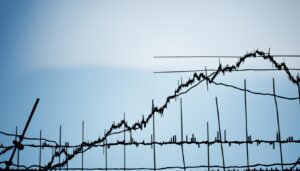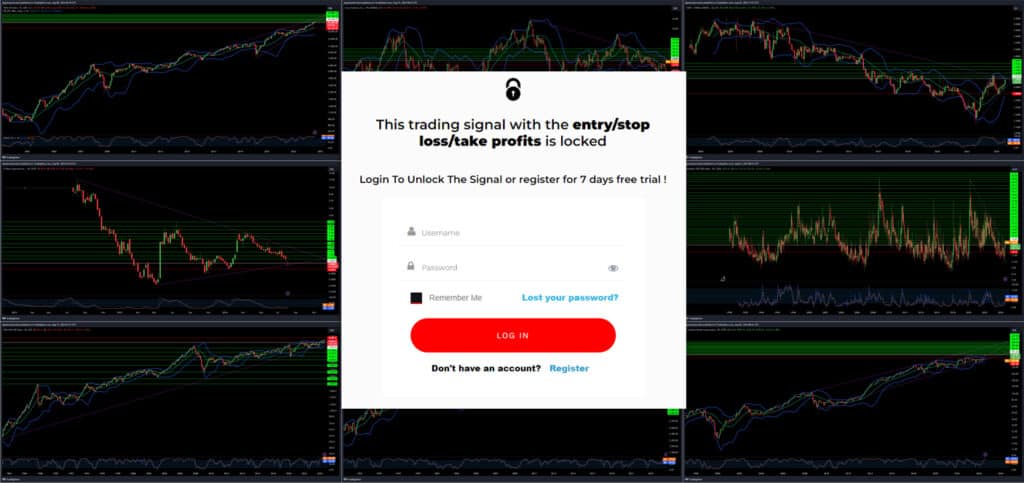Recent events with groups like Hamas and countries like Russia can shake the global scene. These events lead to stock market uncertainty. Investors often sell stocks fast when they hear about war or tensions.
Despite this, history teaches us something important. Past wars haven’t hit stock markets hard for long. Markets can bounce back fast when things quiet down or the conflict’s true scale is understood.
When war or conflict affects stock markets, keep in mind our markets are complex. They move based on many things, like the economy and how companies are doing. So, while wars can add a bit of uncertainty, they aren’t the only things steering the stock market boat.
Investors should also think about how wars might end through diplomacy. If there are efforts to stop the conflict, this could help the economy and stock markets. So, keep an eye on how people are working to make peace.
Key Takeaways:
- Conflicts and geopolitical tensions can impact the global economy and stock markets.
- Wars create uncertainty and initial sell-offs, but stock markets have historically shown resilience and quick recovery.
- Multiple factors influence stock market performance, including economic indicators and investor sentiment.
- Conflict resolution mechanisms and diplomatic efforts can help mitigate the impact of conflicts on the stock market.
How Wars Affect Stock Markets
War makes markets uncertain, which is often bad news for them. When war is likely, stocks can fall, and people may sell them to buy safer things. Yet, history shows us that markets can recover fast when peace returns. During wars, certain types of stocks, like those in defense or energy, can actually do well. This is because these companies might see more demand for their products or higher prices.
Market Reaction to Wars
At the first hint of war, markets react by being cautious. There’s a rush to sell stocks and buy things like gold or government bonds. This happens because everyone’s afraid of what the war might bring. As a result, stock prices might drop at first.
“During times of war, the stock market can become quite volatile as investors try to gauge the potential impact on companies and the overall economy. However, it is important to note that the stock market is forward-looking and can quickly rebound once the initial shock subsides and a sense of stability returns.”
Resilience of Stock Markets
Moving past the shock of conflicts, markets often bounce back. Over time, they show they can pull through war’s hard times. This is thanks to how businesses adapt, help from governments, and realizing that wars usually don’t hurt the economy for long.
Opportunities in Defense and Energy Stocks
When war’s looming, defense and energy stocks could be smart choices. Companies like Lockheed Martin and Boeing might see more business as governments spend more on defense. Also, troubles with oil production or energy supply can boost energy market prices.
But, investing in these areas needs smart thinking. You should look at each company’s strengths, the conflict’s effects, and the world situation. By making careful choices, you can find good investment options despite the war.
Overall, wars can shake up stock markets. But, the stock market usually finds its way back up. Investors should stick to their long-term plans. This is because the market tends to recover, and there are good chances in the defense and energy sectors. Keeping a diverse portfolio for long-term growth helps manage through the market’s war reactions.
Summary
War does change stock markets and can lead to some up and downs. But, historically, markets have shown they can bounce back. It’s key for investors to stay focused on the long run. Look out for chances in the defense and energy fields. And keep a portfolio that covers different areas well. This approach helps deal with how wars affect the stock market.
Historical Examples of Stock Market Performance During Geopolitical Events
Focusing on historical data shows us how past events affected the stock markets. This lets investors spot trends and patterns for better decision-making. Markets tend to bounce back quickly from wars and other big events.
Initial responses might cause some hiccups, but the overall impact on market value is usually small. Stocks typically hit their lowest point in about 19 days, then fully recover in about 42 days. The speed of this recovery is a clear sign of the market’s strength.
Stock market behavior hinges a lot on whether a recession is looming. If wars happen during good economic times, markets often recover faster. However, unclear economic conditions can mean a slower bounce back.
Looking at some past events helps us understand how markets react. Let’s take a closer look at a few examples:
American Civil War (1861-1865)
“During the American Civil War, the stock market saw a quick drop at first. However, it then bounced back as the war carried on. The market’s ability to recover fast showed its strength under pressure.”
World War II (1939-1945)
“World War II also caused a drop in the markets initially. But as the war continued, the market got stronger. This shows that the market can cope with major global events.”
Geopolitical Tensions in the Middle East (ongoing)
“Ongoing tensions in the Middle East have led to market ups and downs. Drawdowns happen when tensions are high. But often, markets recover well once the situation stabilizes.”
These examples prove that markets prevail through wars and geopolitical upheavals. They remind investors to stay calm during market swings and focus on long-term plans. It’s key to have a varied investment mix tailored to your risk tolerance and goals when facing geopolitical risks.
| War/Geopolitical Event | Initial Market Reaction | Drawdown Duration | Full Recovery Duration |
|---|---|---|---|
| American Civil War (1861-1865) | Decline | Approximately 19 days | Approximately 42 days |
| World War II (1939-1945) | Decline | Approximately 19 days | Approximately 42 days |
| Geopolitical Tensions in the Middle East (ongoing) | Fluctuations | Approximately 19 days | Approximately 42 days |
Studying past market reactions to wars and geopolitical events helps investors make smarter choices. While these events can shake the market, history shows it usually recovers quickly. Sticking to long-term strategies and knowing your investment style are keys to handling market uncertainties successfully.
Conclusion
Conflicts and world events can make stock markets go up and down fast. But, looking back, markets generally bounce back over time. It’s smart to keep our eyes on future goals when we invest long-term.
When the market gets shaky due to world events, sticking to our investment plans is crucial. We shouldn’t let short-term changes shake us. Keeping focus on long-term goals helps soften the hit of these events on our investments.
Guessing how the market will react to world events is tough. Markets can swing a lot and for many reasons. This is why spreading our investments out and taking careful steps are vital during uncertain times.
Conflict does affect markets, but markets show they can stand strong over time. Staying focused on our long-term investment goals is key. With the right approach, we can face global issues confidently and work towards our financial dreams.
FAQ
How does conflict resolution mechanisms impact the stock market?
What are the global implications of conflicts on the stock market?
How do wars impact the stock market?
Do defense and energy stocks perform well during wars?
How has the stock market performed during past wars and military conflicts?
What is the main determinant of stock market returns during conflicts?
How should investors navigate through geopolitical uncertainties?
Source Links
- https://www.investopedia.com/solving-the-war-puzzle-4780889
- https://www.bairdwealth.com/insights/market-insights/baird-market-strategy/2023/10/all-that-matters-war-and-the-stock-market/
- https://www.lpl.com/research/blog/middle-east-conflict-how-stocks-react-to-geopolitical-shock.html
Disclaimer
All information on this website is of a general nature. The information is not adapted to conditions that are specific to your person or entity. The information provided can not be considered as personal, professional or legal advice or investment advice to the user.
This website and all information is intended for educational purposes only and does not give financial advice. Signal Mastermind Signals is not a service to provide legal and financial advice; any information provided here is only the personal opinion of the author (not advice or financial advice in any sense, and in the sense of any act, ordinance or law of any country) and must not be used for financial activities. Signal Mastermind Signals does not offer, operate or provide financial, brokerage, commercial or investment services and is not a financial advisor. Rather, Signal Mastermind Signals is an educational site and a platform for exchanging Forex information. Whenever information is disclosed, whether express or implied, about profit or revenue, it is not a guarantee. No method or trading system ensures that it will generate a profit, so always remember that trade can lead to a loss. Trading responsibility, whether resulting in profits or losses, is yours and you must agree not to hold Signal Mastermind Signals or other information providers that are responsible in any way whatsoever. The use of the system means that the user accepts Disclaimer and Terms of Use.
Signal Mastermind Signals is not represented as a registered investment consultant or brokerage dealer nor offers to buy or sell any of the financial instruments mentioned in the service offered.
While Signal Mastermind Signals believes that the content provided is accurate, there are no explicit or implied warranties of accuracy. The information provided is believed to be reliable; Signal Mastermind Signals does not guarantee the accuracy or completeness of the information provided. Third parties refer to Signal Mastermind Signals to provide technology and information if a third party fails, and then there is a risk that the information may be delayed or not delivered at all.
All information and comments contained on this website, including but not limited to, opinions, analyzes, news, prices, research, and general, do not constitute investment advice or an invitation to buy or sell any type of instrument. Signal Mastermind Signals assumes no responsibility for any loss or damage that may result, directly or indirectly, from the use or dependence on such information.
All information contained on this web site is a personal opinion or belief of the author. None of these data is a recommendation or financial advice in any sense, also within the meaning of any commercial act or law. Writers, publishers and affiliates of Signal Mastermind Signals are not responsible for your trading in any way.
The information and opinions contained in the site are provided for information only and for educational reasons, should never be considered as direct or indirect advice to open a trading account and / or invest money in Forex trading with any Forex company . Signal Mastermind Signals assumes no responsibility for any decisions taken by the user to create a merchant account with any of the brokers listed on this website. Anyone who decides to set up a trading account or use the services, free of charge or paid, to any of the Broker companies mentioned on this website, bears full responsibility for their actions.
Any institution that offers a service and is listed on this website, including forex brokers, financial companies and other institutions, is present only for informational purposes. All ratings, ratings, banners, reviews, or other information found for any of the above-mentioned institutions are provided in a strictly objective manner and according to the best possible reflection of the materials on the official website of the company.
Forex/CFD trading is potentially high risk and may not be suitable for all investors. The high level of leverage can work both for and against traders. Before each Forex/CFD investment, you should carefully consider your goals, past experience and risk level. The opinions and data contained on this site should not be considered as suggestions or advice for the sale or purchase of currency or other instruments. Past results do not show or guarantee future results.
Neither Signal Mastermind Signals nor its affiliates ensure the accuracy of the content provided on this Site. You explicitly agree that viewing, visiting or using this website is at your own risk.




